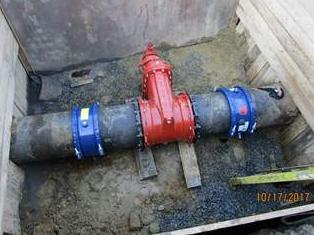Kenoza Lake Water Treatment Plant Upgrades
Haverhill, Massachusetts
DWSRF # 4074
The drinking water treatment plant rehabilitation project stems from recommendations made in the city's Comprehensive Water System Master Plan completed in May 2010. Beginning in 2012 the city and its consultant Wright-Pierce began the work to evaluate alternatives, pilot test, design, permit, and procure the project. The contract to complete the construction of the improvements was awarded to Methuen Construction. Methuen Construction was issued a notice to proceed on April 25, 2017 with an anticipated final completion date of June 23, 2020.
Local funding authorization totaling $41,135,699 was approved by the Mayor and City Council under two separate loan orders in 2016 (Doc 15-C) and 2017 (Doc 44-B). This authorized the project to obtain financing and move forward to the construction phase.
This project will enable the complete renovation of Haverhill's 37-year old drinking water treatment facility. The upgrades will provide new and redundant processes to ensure the water quality continues to meet the requirements of the Safe Drinking Water Act. Additional clarification, filtration, and disinfection capacity will be constructed as part of the upgrades. Together these improvements will ensure the water consumers supplied by the City of Haverhill Water Department will continue to receive the highest possible water quality as the demands on Haverhill's water system grow.
Construction of the upgrades to the Kenoza Lake water treatment plant is financed by the Drinking Water State Revolving Fund (DWSRF). The DWSRF program is administered by the Commonwealth of Massachusetts Department of Environmental Protection with joint funding from the U.S. Environmental Protection Agency and Commonwealth of Massachusetts.
DWSRF programs operate around the country to provide states and communities the resources necessary to maintain and improve the infrastructure that protects our valuable water resources nationwide. More information about the DWSRF can be found on the EPA website or the MassDEP website.




